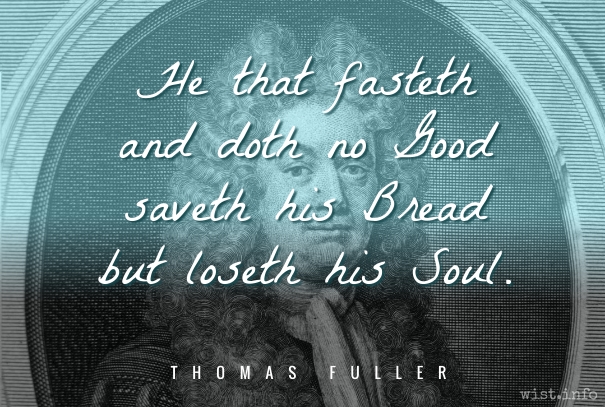Authors are actors, books are theaters.
Quotations about:
performance
Note not all quotations have been tagged, so Search may find additional quotes on this topic.
HARRIS: I call it performance art, but my friend Ariel calls it wasting time. History will decide.
Steve Martin (b. 1945) American comedian, actor, writer, producer, musician
L. A. Story (1991)
(Source)
HARRIS: I call it performance art, but my friend Ariel calls it wasting time. History will decide.
Steve Martin (b. 1945) American comedian, actor, writer, producer, musician
L. A. Story (1991)
(Source)
She weeps not for her sire if none be near,
In company she calls up many a tear.
True mourners would not have their sorrows known,
For grief of heart will choose to weep alone.[Amissum non flet cum sola est Gellia patrem,
Si quis adest, iussae prosiliunt lacrimae.
Non luget quisquis laudari, Gellia, quaerit,
Ille dolet vere, qui sine teste dolet.]Martial (AD c.39-c.103) Spanish Roman poet, satirist, epigrammatist [Marcus Valerius Martialis]
Epigrams [Epigrammata], Book 1, epigram 33 (1.33) (AD 85-86) [tr. Pott & Wright (1921)]
(Source)
"On Gellia." (Source (Latin)). Alternate translations:Gellia ne'er mourns her father's loss,
When no one's by to see,
but yet her soon commanded tears
Flow in society:
To weep for praise is but a feigned moan;
He grieves most truly, that does grieve alone.
[tr. Fletcher (1656)]When all alone, your tears withstand;
In company, can floods command.
Who mourns for fashion, bids us mark;
Who mourns indeed, mourns in the dark.
[tr. Killigrew (1695)]Gellia alone, alas! can never weep,
Though her fond father perish'd in the deep;
With company the tempest all appears
And beauteous Gellia's e'en dissolved in tears.
Through public grief though Gellia aims at praise,
'Tis private sorrow which must merit raise.
[Gentleman's Magazine (1736)]Her father dead! -- Alone no grief she knows;
Th' obedient tear at every visit flows.
No mourner he, who must with praise be fee'd!
But he, who mourns in secret, mourns indeed.
[tr. Hay (1755), 1.34]Sire-reft, alone, poor Gellia weeps no woe:
In company she bids the torrent flow.
they cannot grieve, who to be seen, can cry:
Theirs is the grief, who without witness sigh.
[tr. Elphinston (1782), Book 6, Part 3, ep. 1]Gellia, when she is alone, does not lament the loss of her father. If any one be present, her bidden tears gush forth. A person does not grieve who seeks for praise; his is real sorrow who grieves without a witness.
[tr. Amos (1858), #95 "Feigned Tears"]Gellia does not mourn for her deceased father, when she is alone; but if any one is present, obedient tears spring forth. He mourns not, Gellia, who seeks to be praised; he is the true mourner, who mourns without a witness.
[tr. Bohn's Classical (1859)]He grieves not much who grieves to merit praise;
His grief is real who grieves in solitude.
[ed. Harbottle (1897)]Gellia weeps not while she is alone for her lost father; is any one be present, her tears leap forth at her bidding. He does not lament who looks, Gellia for praise;' he truly sorrows who sorrows unseen.
[tr. Ker (1919)]Gellia, alone, ne'er weeps her sire at all;
In company the bidden tears down fall.
True grief is not for admiration shown.
He only weeps indeed, who weeps alone.
[tr. Francis & Tatum (1924), #18, 1.32]When alone, Gellia never cries for the father she lost.
If someone is with her, tears well up in her eyes,
as if ordered to fall in. If some one looks for praise,
he is not in mourning, Gellia.
He truly mourns
who mourns
alone.
[tr. Bovie (1970)]In private she mourns not the late-lamented;
If someone's by her tears leap forth on call.
Sorry, my dear, is not so easily rented.
They are true tears that without witness fall.
[tr. Cunningham (1971)]Gellia does not cry for her lost father when she's by herself, but if she has company, out spring the tears to order. Gellia, whoever seeks credit for mourning is no mourner. He truly grieves who grieves without witnesses.
[tr. Shackleton Bailey (1993)]Gellia's mourning for her father?
If by herself she doesn't bother.
But when she sees that company lurks
She opens up the waterworks.
She just wants praise for grief that's shown;
They truly grieve who weep alone.
[tr. Ericsson (1995)]When Janet is sequestered, out of view,
Then never for her father's death she cries.
But let some viewers come, just one or two,
Then tears dramatically flood her eyes.
We know from this how sad in fact she's been:
It is not grief that's only grieved when seen.
[tr. Wills (2007)]Gellia doesn't weep for her dead father
when she's alone, but tears pour on command
if someone comes. Who courts praise isn't mourning --
he truly grieves who grieves with none at hand.
[tr. McLean (2014)]Alone, Gellia never weeps over her father's death;
if someone's there, her tears burst forth at will.
Mourning that looks for praise, Gellia, is not grief:
true sorrow grieves unseen.
[tr. Powell]
A man who parades his piety is one who, under an atheist king, would be an atheist.
[Un dévot est celui qui, sous un roi athée, serait athée.]
Jean de La Bruyère (1645-1696) French essayist, moralist
The Characters [Les Caractères], ch. 13 “Of the Fashion [De la Mode],” § 21 (13.21) (1688)
(Source)
La Bruyère notes in the original this refers to a "faux dévot."
(Source (French)). Alternate translations:An Hypocrite is one that will be an Atheist under a King that is so.
[Bullord ed. (1696)]A Devote is one, that under a King who was an Atheist, would be a Devote.
[Curll ed. (1713)]A Devoto is one, that under an atheistical King wouild be an Atheist.
[Browne ed. (1752)]A pious person is one who, under an atheistical king, would be an atheist.
[tr. Van Laun (1885)]A pious hypocrite is one who, under an atheistic king, would be an atheist.
[tr. Stewart (1970)]
Wherefore, we must not think it sufficient that we do any thing merely well; but we ought to make it our study to do every thing gracefully also.
[Non si dèe adunque l’uomo contentare di fare le cose buone, ma dèe studiare di farle anco leggiadre.]
Giovanni della Casa (1503-1556) Florentine poet, author, diplomat, bishop
Galateo: Or, A Treatise on Politeness and Delicacy of Manners [Il Galateo overo de’ costumi], ch. 28 (1558) [tr. Graves (1774)]
(Source)
(Source (Italian)). Alternate translations:It is not inoughe for a man, to doe things that be good: but hee must also have a care, hee doe them with a good grace.
[tr. Peterson (1576)]Therefore, a man must not be content with doing what is good, but he must also seek to do it gracefully.
[tr. Einsenbichler/Bartlett (1986)]A man must therefore not be content to do things well, but must also aim to do them gracefully.
It is tiresome to keep hearing that the Bible is “the best-selling book” of all time, as though the fact that many people buy it indicates that they read it, understand it or follow it.
Sydney J. Harris (1917-1986) Anglo-American columnist, journalist, author
For the Time Being (1972)
(Source)
But man is a Noble Animal, splendid in ashes, and pompous in the grave, solemnizing Nativities and Deaths with equall lustre, nor omitting Ceremonies of bravery, in the infamy of his nature.
Thomas Browne (1605-1682) English physician and author
Hydriotaphia, or Urne-Buriall, ch. 5 (1658)
(Source)
He who fasteth and doth no Good, saveth his Bread but loseth his Soul.
Thomas Fuller (1654-1734) English physician, preacher, aphorist, writer
Gnomologia: Adages and Proverbs, #2382 (1732)
(Source)
Only mediocrity can be trusted to be always at its best. Genius must always have lapses proportionate to its triumphs.
Max Beerbohm (1872-1956) English parodist, caricaturist, wit, writer [Sir Henry Maximilian Beerbohm]
Obituary of Dan Leno, Saturday Review (5 Nov 1904)
(Source)
Promise little, and do much; so shalt thou have Thanks.
Thomas Fuller (1654-1734) English physician, preacher, aphorist, writer
Introductio ad Prudentiam, Vol. 1, # 111 (1725)
(Source)
Promises may get Friends, but ’tis Performances that keep them.
Thomas Fuller (1654-1734) English physician, preacher, aphorist, writer
Gnomologia: Adages and Proverbs, #3957 (1732)
(Source)
We make promises to the extent that we hope, and keep them to the extent that we fear.
[Nous promettons selon nos espérances, et nous tenons selon nos craintes.]
François VI, duc de La Rochefoucauld (1613-1680) French epigrammatist, memoirist, noble
Réflexions ou sentences et maximes morales [Reflections; or Sentences and Moral Maxims], ¶38 (1665-1678) [tr. Kronenberger (1959)]
(Source)
Present from the 1st edition in 1665.
(Source (French)). Alternate translations:Our Promises are always made with a reflection on our Hopes, and perform'd according to our fears.
[tr. Davies (1669), ¶16]We promise in proportion to our Hopes,
and we keep in proportion to our Fears
[tr. Stanhope (1694), ¶39]We promise in proportion to our Hopes, and we keep our Word in proportion to our Fears.
[tr. Stanhope (1706), ¶39]We promise according to our hopes, and perform according to our fears.
[pub. Donaldson (1783), ¶357; [ed. Lepoittevin-Lacroix (1797); ed. Gowens (1851), ¶39]We promise according to our hopes; we perform according to our fears.
[ed. Carville (1835), ¶463; tr. Bund/Friswell (1871)]Promises are measured by hope; performances by fear.
[tr. Heard (1917)]Our promises are measured by our hopes; our performances by our fears.
[tr. Stevens (1939)]Our promises are made in hope, and kept in fear.
[tr. FitzGibbon (1957)]Our promises are made in proportion to our hopes, but kept in proportion to our fears.
[tr. Tancock (1959)]We make promises according to our hopes, and keep them according to our fears.
[tr. Whichello (2016)]
PORTER: Drink, sir, is a great provoker of three things.
MACDUFF: What three things does drink especially provoke?
PORTER: Marry, sir, nose-painting, sleep, and urine.
Lechery, sir, it provokes, and unprovokes;
it provokes the desire, but it takes away the performance:
therefore, much drink may be said
to be an equivocator with lechery:
it makes him, and it mars him;
it sets him on, and it takes him off;
it persuades him, and disheartens him;
makes him stand to, and not stand to;
in conclusion, equivocates him in a sleep,
and, giving him the lie, leaves him.William Shakespeare (1564-1616) English dramatist and poet
Macbeth, Act 2, sc. 3, l. 27ff (2.3.27-38) (1606)
(Source)
Manners are the shadows of virtues; the momentary display of those qualities which our fellow creatures love, and respect. — If, we strive to become, then, what we strive to appear, manners may often be rendered useful guides to the performance of our duties.
Sydney Smith (1771-1845) English clergyman, essayist, wit
Sermon (1809 pub.), “On the Judgments We Form of Others”
(Source)
Sermon on Leviticus 19:15.
The reward of a thing well done, is to have done it.
Ralph Waldo Emerson (1803-1882) American essayist, lecturer, poet
“New England Reformers,” lecture, Boston (1844-03-03), Essays: Second Series (1844)
(Source)
Reprinted in Essays: Second Series (1844).
















